Internet

MAYBE YOU FIRST saw it while sitting in the waiting room of the doctor’s office — a Fox News banner update across the bottom of the screen. Or perhaps you saw the hashtag on X or Threads. Maybe you’re following the story as internet sleuths exchange theories on Reddit. Here’s what you know: There’s an SUV making its way from California to Washington, D.C., driven by a man and a woman in their 20s. They’re transporting some sort of nuclear device, and they plan to blow up the president. And, for some reason, law enforcement isn’t taking this very seriously.
It’s the story of the moment. Even though nobody has any real facts. Everyone just knows we’re collectively watching a disaster unfold.
Such is the setup for Jason Pargin’s I’m Starting to Worry About this Black Box of Doom, a parable of the dangers of the information age. Pargin’s witty, incisive novel illustrates how social media has eroded our ability to trust each other.

FRANTICALLY GRABBING last-minute items, I rush out the door to get my middle-school son to his pregame warm-up. “Oh, don’t rush; it will only take us 25 minutes to get there,” says my son. Surprised, I question where he got that information. Looking up from his phone, he replies, “Google sent a notification on my phone since my calendar has the game with location.” With some marvel in his tone, he remarks, “Every morning Google Assistant tells me how long it will take the bus to get to school.”
Humans have always shared information with each other, but the advance of digital media altered the time and geographic constraints that once shaped our historical patterns of communication. This transition ended the “Gutenberg era,” a period of human communication marked by a dependency on print, authorship, and fixity, and launched us into an era of communication marked by openness, collaboration, and easy access to information.
Despite the rapid pace at which we churn through this information, our new communication styles are also shaped, paradoxically, by permanence. Every share, post, or comment is archived, creating an online trove of information that identifies every person and their connections: where we get our news, what we look like, what sports team or social causes we support, who “likes” our church on Facebook, and, in my son’s case, our current whereabouts, our travel route, and destination points.
The internet is forever
In the world of digital ethics, the “endless memory of the internet” has recently attracted a lot of attention. How do we live in a world that increasingly does not forget?

"You and I and everyone else who uses the Internet for personal use will see some changes in pricing models. For most of us, I expect we will pay more. Service bundles (e.g., social media package, streaming video package) will likely be bolted on to basic transport for things like web surfing and email," Glenn O'Donnell, an industry analyst at the research firm Forrester, wrote in an email.

A COUPLE years ago, when net neutrality (the principle that internet service providers must treat all websites equally) was threatened by the U.S. Federal Communications Commission (FCC), Facebook stood firmly in its defense. Google, Netflix, Amazon, Twitter, and other high-tech giants took the same stand. Companies that make their money providing content or mining data from web users need net neutrality in order to function.
This February, India’s equivalent of the FCC, their Telecom Regulatory Authority, had to decide an important net neutrality test case there. A huge, U.S.-based multinational came into the Indian market offering an internet connection that limited users to the parent company’s own site and a severely limited menu of other pre-selected sites. This company spent millions on an advertising campaign against the principle of net neutrality in India. But finally Indian regulators stood firm and net neutrality was upheld.
The strange twist here is this: The U.S.-based Goliath fighting net neutrality in India was Facebook.
An obvious conclusion here would be that Facebook thinks net neutrality is only good for rich countries. Indians must be too poor, too ill-educated, maybe even too brown to handle the freedom and responsibility that comes with an open internet. That impression was confirmed when a member of Facebook’s board of directors, venture capitalist Marc Andreessen, went on Twitter to proclaim: “Anti-colonialism has been economically catastrophic for the Indian people for decades. Why stop now?”
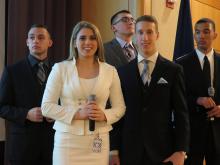
Last fall, 16 West Point cadets — none of them Muslim — signed up for an elective on counter-terrorism and created a Facebook page to appeal to young Muslims thinking about joining the so-called Islamic State group. The cadets aimed to convince those tempted by the terrorist cause to see jihad in Islam as a peaceful endeavor. For their project to succeed, the cadets knew, they would have to learn more about the faith, and build a social media platform that reserved judgment even on those who expressed admiration for committed terrorists.

I think the reason why the Christian Internet is so exasperating is because it is filled with so many people. Sensational click baits trend because we love juicy scandals. We share angry articles and judgmental pieces because it satisfies our human desires to point fingers and be in the right. The Internet has exposed the basest of our human fears and aired out our dirtiest laundry with the lure of anonymity and protection from our screens.
The Christian Internet is all of us with our mess, our flaws, our brokenness, our hurts, our mistakes, and our pains. Which means that as hard as it is for us to see through the hazy noise pollution, behind every instigator of a mean meme is a person made in the image of God. And as long as I believe that is true, you can’t pry me away from the Christian Internet because I am not about to miss the astounding beauty that is sure to rise from the squabbling ashes.

Pope Francis has decried the “filth” of online pornography and warned people against wasting time on their computers.
Speaking aboard the papal plane after his visit on June 6 to Bosnia-Herzegovina’s capital of Sarajevo, the pontiff took a two-pronged approach to modern technology.
“There are two different elements here: method and content,” he said, according to Vatican Radio.
“Regarding the method or way of doing things, there is one that is bad for the soul, and that is being too attached to the computer.”
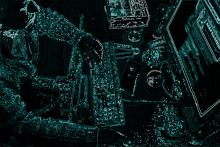
BY NOW MOST of us know that when we use the internet, we are giving up privacy and exposing ourselves to potential surveillance and fraud. But we probably didn’t know until recently that in poor and distant lands, souls are being stained and scarred for the sake of our internet browsing experience.
There’s an old saying that nobody really wants to know the details of making sausage or passing legislation. Now there’s an update: You really don’t want to know how—in a world peopled by thousands of internet-capable sickos, murderers, perverts, and fanatics—your social media feeds remain so remarkably free of beheadings, snuff videos, and child porn.
Like me, if you ever thought about that, you perhaps assumed that some miraculous algorithm was automatically filtering all the bad stuff. Well, think again.
In the early days of the internet, porn sites occasionally popped up in the course of ordinary, innocent internet use. But search engine filters and various parental control programs seem, to my experience, to have made that a thing of the past. Today, every evil and dehumanizing image and act under the sun is still out there somewhere on the internet, and we are all much more connected to one another than ever before—yet, for the most part, you have to go looking for the dark side.

Two years ago, “Max” was a devout Catholic who loved his faith so much he would sometimes cry as he swallowed the Communion wafer.
Then came the Sandy Hook Elementary School massacre, where 20 schoolchildren and six adults were murdered by a troubled gunman. At that moment, a bell went off in his head, he said, ringing “there is no God, there is no God.”
Now, Max goes by his online handle “Atheist Max.” A 50-something professional artist from the Northeast, some days he now spends two or more hours online trying to argue people out of their religious beliefs in the comments section of Religion News Service.
Max left more than 3,600 comments in the past 12 months, making him RNS’ top commenter. Many of his remarks can be interpreted as angry, hostile, and provocative, casting him in some minds as an Internet “troll” — a purposely disruptive online activist who delights in creating comment chaos.
He’s written “Jesus is despicable” or its equivalent more than once — red meat to some readers who come back at him with fervor. Other users have called him “mean-spirited” or “angry.”
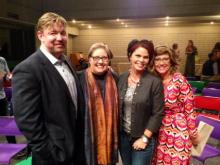
It was a gathering that would have been unthinkable just five years ago.
On a cool summer evening, in a borrowed classroom overlooking San Francisco Bay, about 150 men and women gathered to screen a short documentary about a Mormon family whose 13-year-old son came out as gay.
The Montgomerys, who accepted their son and his news, were ostracized by church members, some of whom refused to accept Communion distributed by the young man in church. Like many conservative Christian denominations, the 15 million-member Church of Jesus Christ of Latter-day Saints bans homosexual activity and considers it grounds for exclusion from Mormon rites, rituals and even the afterlife.
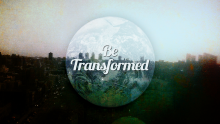
The Internet is a wonderful, fascinating, and disturbing place — a petri dish of The Fall characterized by opinion as truth. As the Web Editor of Sojourners, I spend more time than anyone has a right to (or typically, the stomach for) perusing unconscionable clickbait, racism and sexism parading as deeply informed counter-thought, various analyses of others’ public failures, and, obviously, cat and baby memes.
I’m not sure how many times a headline has toyed with my emotions, threatening to “blow my mind” by dropping a “truth bomb” that “no one saw coming!” Invariably, whatever is behind the façade of amazement punctuated with eight exclamation points fails to impress (unless it’s this baby goat jumping for joy set to indie acoustic guitar), and I’m left with a handful of moments of my days I’ll never get back.
In the Christian publication world, we easily fall prey to this trend, and I’ll confess I fail on a fairly regular basis. A colleague and I were discussing how there seems to be a clear trend in Christian blog posts that are aimed at airing the church’s dirty laundry in attempts to prove “yeah, we’re Christians, but …” We’re Christians, but we’re not like them. We’re Christians, but you can probably believe whatever you want to believe and it’ll be fine. We’re Christians, but we’re not going to try to convert you. It goes a little something like:

THE CONTROVERSY over net neutrality has come back to the Federal Communications Commission (FCC) where it began, and the commissioners need to hear, immediately, one simple message from ordinary citizens: “Reclassify broadband internet as a telecommunications service.”
You don’t really even need to know what those seven words mean. Just say them—by phone, email, fax, or carrier pigeon—until the commissioners get the idea.
That imperative sentence is aimed at preventing a policy shift that could turn our information superhighway into a fast, expensive toll road for the wealthy and force ordinary citizens onto a two-lane frontage road, with lots of traffic lights.
Net neutrality, as you may recall, is the principle that internet service providers—the companies that own the cable or the wireless frequencies that bring the internet to your device—should treat all digital content the same. Comcast shouldn’t block Amazon Prime to force you into its own video-on-demand service, and Verizon shouldn’t let Netflix pay more to get higher download speeds than its competitors. As a corollary, this means that independent filmmakers and video journalists have the same access to the online audience that the corporate big boys have.
YOU DON’T HAVE to be an environmentalist to wonder about technology. Will it be our great savior or another thorn in the flesh, another opportunity to hear Thoreau’s lament about the tendency of humans to “become the tools of their tools”?
This excellent collection of prayers and worship materials, From the Psalms to the Cloud, helps us understand the tool of technology. It is a very green book while also being useful. It is green because it gives us a way out of the totalitarian world of the market and into a world that we make with words.
Just about everybody is on the other side of the “time famine” and the “trust famine” and deep into digital and connectivity overload. By time famine I mean the pervasive sense that there is not enough time to do what we want, so subjugated is our time to technology, forms, and robotic requests for information. By trust famine I mean all that time we spend worrying about time and wondering if somebody else is in charge. Are we in charge of our tools and our time or are our tools and time in charge of us?
In this optimistic book, the prophets arrive. Mankin and Tirabassi ask the right question: Can a technology devoted to advertising be useful to spirituality? They answer with a careful yes, taking us on the long road from the Psalms to Twitter, by way of “vintage wine in vintage wineskins, uncorked.” These two writers gather the wisdom of dozens of beautiful writers of prayers and liturgies and show us a way to go deep digitally. Whether they are praying for energy that will “deeply change all of our clocks,” or for the return of the time when churches giving sanctuary for immigrants will become again “dusty places with pews,” or in any of John Dannon’s exquisite doxologies for the natural and ecclesiastical seasons, or encouraging us to “spend a day saying nothing that doesn’t need saying.” The prayer topics move through addiction to pregnancy to a ritual for quitting a job. What a great ask this is for those confused or overdone with technology: We pray “for a trap door when we hit rock bottom.”

I was born in 1990. That puts me squarely in the middle of what is referred to as the millennial generation.
It also, apparently, makes me a lazy, entitled, narcissist who still lives with my parents.
But that’s beside the point. What’s more important about the date of my birth is that it places me at a distinct and pivotal point in human history: I grew up with the Internet — what they call a “digital native.”
I (vaguely) remember when the Internet got popular; having slow, dial-up that made lots of crazy noises whenever you wanted to use it; talking to other angsty teens on AOL Instant Messenger (“AIM”); downloading music on Napster and Kazaa; and then, slowly but surely, having the Internet became engrained in my everyday life as if it was there the whole time.
But, like the bratty sibling I grew up with (upon reflection, I was equally, if not more, bratty — #humility #perspective), I’ve recognized that I have a love/hate relationship with the Internet. It’s a game-changer for the human experience, so, like that sibling, I think I’ll always love it. But, for every positive, innovative element of the Internet there is an equal and opposite reaction.

I grew up in the days of the encyclopedia salesman. I clearly remember the day when a clean-cut well-dressed man knocked on our apartment door to sell the 26-volume World Book Encyclopedia.
We were recent immigrants and could not speak English fluently. We had few worldly possessions and the last thing we needed in our house was a 26-volume encyclopedia.
After the hour presentation during which we flipped through the volumes full of exciting information, my dad said no. The salesman looked sad and pitiful as he packed his sales kit. As he exited the door, he gave one last pitch and, suddenly, my dad changed his mind and we bought the whole set.
Either the salesman was good or my parents had this strong desire that their children needed to know “everything there is to know about the world.” Maybe it was a bit of both.
In 2014, long gone are those 26-volume encyclopedias that once filled the bookshelves of many of my childhood friends’ homes. Now we have everything that we need to know at our fingertips through iPads, computers, cell phones, or other gadgets.

A smart professor in Massachusetts noticed recently that religion’s decline in America coincided with the rise of the Internet.
He theorized that the two may be connected. Headline: “Is the Internet bad for religion?”
It’s utter nonsense, of course. The decline of mainline churches began in 1965, not in the 1990s when the Internet became commercially available. It would be more accurate, from a timing standpoint, to say that the American League’s designated hitter rule (1973) caused religion’s decline. Or maybe the “British invasion” in rock ‘n’ roll (1964).

A post making the Facebook rounds claims that “a mix of honey and cinnamon cures most diseases.” Mix honey and cinnamon together and your arthritis pain will vanish, your lost hearing will be restored, the flu virus ravaging your body will be killed, and your eczema and ringworm will disappear!
I know I should ignore this stuff. But I can’t. Every outrageous health claim I come across online (and there are many) cuts me to the quick, because of what they say about me as a person with a disability, and about us as God’s beloved creatures.
The Internet fosters a populist environment in which regular folks’ life wisdom, assumed to be more valuable than professional or conventional wisdom, is rarely questioned, despite obvious logical fallacies. For example, while many foods, including honey and cinnamon, indeed have therapeutic potential for reducing inflammation and boosting immunity, that’s a far cry from curing arthritis or hearing loss. Yet people click and share, apparently without pausing to consider how outlandish it is to claim that two common foods can cure — not ameliorate, but cure — a long list of health problems that have affected people for all of human history.

2013 WAS ANOTHER year when the future arrived. We’ve been having a lot of those lately. First there was 2010. According to the Project for Excellence in Journalism, that year more Americans got their news online than from reading a newspaper. Next, 2011 was the year when the internet started replacing not just the local bookstore, but books themselves. That’s when Amazon made more money from e-books than from real ones. The same thing happened in 2012, when revenue from music downloads surpassed that from the sale of recorded discs.
The newest future dawned last year when the American Academy of Television Arts and Sciences officially recognized that the internet was replacing TV. They didn’t say that, of course. The Academy just said that online streaming series, such as Netflix’s House of Cards andArrested Development, were eligible for Emmy Awards. For a little perspective here, the Emmys were once only for broadcast TV—the stuff you can get from a roof antenna. Cable productions became eligible in 1988, and last year not a single broadcast production was even nominated for the best drama award.
In the first year of internet eligibility, David Fincher won the best director Emmy for House of Cards. In case anyone still thinks that web TV is for has-beens and wannabes, in 2011 Fincher was nominated for the best director Oscar for The Social Network. Last fall, Doonesbury creator Garry Trudeau produced a series (Alpha House) for streaming on Amazon. For the record, Trudeau’s last television venture was Lucas Tanner for HBO, in 1988.

FOR SEVERAL years now, a debate has raged over the issue of “net neutrality,” pitting media reformers, digital libertarians, and “content” companies such as Amazon and Netflix against old-school telecommunication giants such as AT&T and Comcast, with the Federal Communications Commission serving as an erratic referee.
Sometime early this year, the U.S. Court of Appeals for the District of Columbia may settle the question when it decides the case of Verizon vs. the FCC. If the court decides in favor of Verizon, big telecom companies will have won the right to decide what digital content we can receive, especially when it comes to video and other bandwidth-intense media.
Simply put, the issue in the Verizon case is whether broadband internet will follow the “common carrier” precedent applied to telephone lines and the electricity grid or the model of cable TV. The common carrier principle guarantees equal access to necessary public utilities. Applied to the internet, this has meant that service providers simply supply the fiber-optic cable or wireless spectrum, give equal access to all content providers, and charge the final recipient of the data (you and me) a fee that covers the cost of maintaining an adequate network.
In the cable TV business model, the provider controls the network of fiber optic cable and the content that goes over it. The cable company decides which channels are included in the basic package, which (like HBO) are purchased separately, and which will be unavailable at any price. If you want Al Jazeera instead of Fox News, too bad—it’s a take it or leave it package.
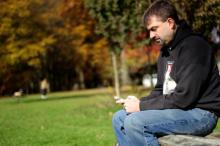
Like lots of college students, Lauren has a smartphone loaded with some of the most popular apps around — Facebook, Twitter, and eBay. And like a lot of unbelievers, she asked to not use her full name because her family doesn’t know about her closet atheism.
One of the apps she uses most regularly is YouVersion, a free Bible app that puts a library’s worth of translations — more than 700 — in the palm of her hand. Close to 115 million people have downloaded YouVersion, making it among the most popular apps of all time.
But Lauren, a 22-year-old chemistry major from Colorado, is not interested in the app’s mission to deepen faith and biblical literacy. A newly minted atheist, she uses her YouVersion Bible app to try to persuade people away from the Christianity she grew up in.
“I know of a lot of atheists who have come to their nonbelief by actually reading the Bible rather than just the fluffy stories they choose to tell you about in church,” she said. “Reading the full story with all its contradictions and violence and sexism, it should make you think, ‘Is this really what I believe in?’ At least it did for me.”
Lauren is not alone. No one knows how many atheists have downloaded YouVersion and other smartphone and tablet Bible apps, but it is enough that word of the phenomenon has reached the Edmond, Okla., headquarters of LifeChurch.tv, the evangelical megachurch that created the app.